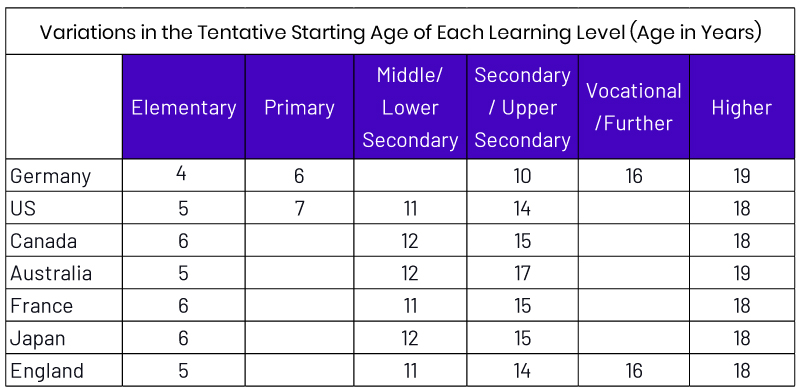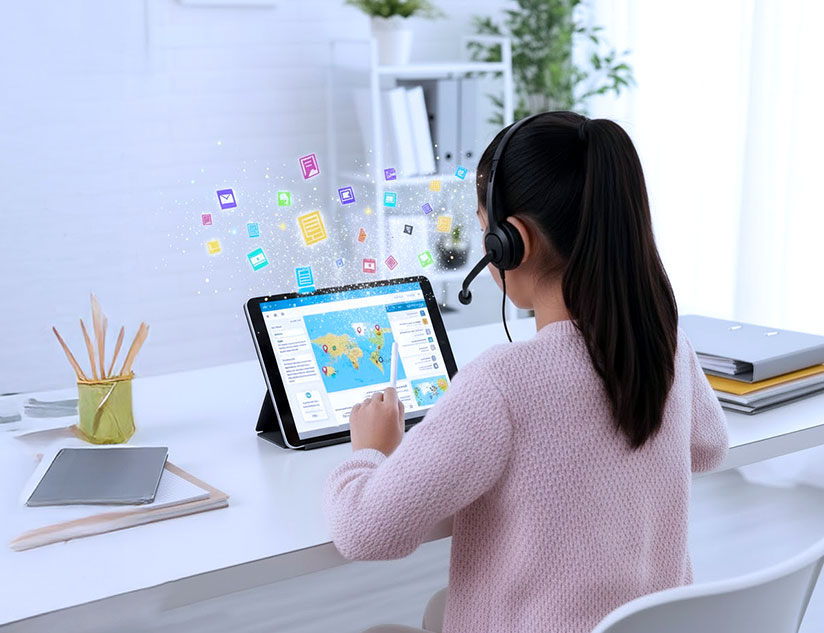As the world becomes increasingly interconnected, the demand for global education is set to rise to prepare students to be global citizens. While the terms across regions may vary from culturally responsive to culturally sustainable, the goal is the same – delivering relevant education. This requires localizing all aspects of the teaching-learning process to ensure a smooth transition from the existing system to your educational platform.
Benefits of Global Expansion for Educational Publishers
Positioning your edtech on the global educational map has several advantages:
- Multiplies revenue streams
- Brand recognition
- Exposure to varied pedagogies to refine teaching and learning processes.
However, the route to the international markets is fraught with challenges. Most important being aligning the experiences on your educational platform to those offered locally.
Education Systems Worldwide
From the Finnish model that emphasizes creativity, critical thinking, and student well-being to the highly competitive South Korean system that considers exam performance crucial to student progress, definitions of learning achievement vary worldwide. The years spent at each level of education also vary significantly. Take a closer look:
Education publishers must note that these are from the more popularly running systems. Countries, such as Japan and the US, have multiple models with varying numbers of years spent in primary/secondary education. While understanding and proposing a curriculum in line with the specific needs of the district/state is critical to winning RFPs, digital learning solutions must also ensure cultural sensitivity.
Adapting the Educational Platform Content
Delivering culturally responsive education has two broad aspects:
Technical
Embedding cultural sensitivity in K-12 education technology entails addressing the unique preferences, values, and perspectives of diverse audiences within a community. These are:
- Offering multilingual support across textual and audiovisual learning materials.
- Developing interfaces with culturally responsive layouts, color themes, and navigation facilities.
- Ensuring seamless accessibility of edtech for remote and classroom K-12 learners.
- Adhering to regional and international standards.
Methodological
Pedagogical aspects to offering culturally sensitive learning on your educational platform include:
- Localizing imagery and making examples, and references culturally relevant.
- Training educators with the right knowledge and skills to maintain a culturally appropriate attitude across classroom teaching, one-on-one discussions, and feedback formats.
- Recognizing and focusing on culturally relevant student progress parameters through appropriate assessments.
Leveraging Technology for Educational Platform
Integrating cutting-edge technologies across the content development, learning delivery, and evaluation phases helps localize content effectively.
Learning Content Development and Distribution
Educational publishers need adequate tools to develop learning materials that can adapt to distinct curricula. Tools that provide for seamless development and distribution of modular content are particularly crucial in edtech for K-12. Automated recommendations on multilingual educational platforms can streamline content localization, taking some load off teachers’ plates. K-12 education technology that allows teachers to assign relevant modules and students to “play” their lessons and assessments on-demand eliminates the need to redevelop content for each cohort.
Educational Platform Content Compliance
K-12 and higher education technology has enabled teachers to reach underserved and unserved students. Remote learners, for instance, can learn a foreign language from native speakers. But compliance is crucial for adoption of educational platforms. Diverse laws and regulations govern digital education across the globe, such as GDPR (EU), FERPA (USA), COPPA (US), PIPEDA (Canada), APPI (Japan), and APA (Australia). Maintaining student privacy is crucial to educational content compliance. To penetrate the global markets, you need an exceptional compliance management platform to navigate the complex regulatory landscape in different regions. In addition, compliance with global standards, such as WCAG, TinCan, LTI, etc., is critical to ensuring interoperability across disparate technology frameworks.
Personalized Learning and Assessments
Globally, academic success is measured against set benchmarks by exams, such as PISA, for learning delivered via standardized teaching techniques, curricula, and assessments. Standardized metrics stifle creativity and holistic development with an insufficient focus on the social-emotional well-being of learners. The increasing focus on personalized learning has raised the demand for newer mechanisms. The goal is to address individual needs and assess the capacity of online educational platforms to enable students to hone their skills and expand their potential. This is where leveraging cutting-edge edtech tools for K-12 to curate personalized learning journeys and targeted assessments can help differentiate your organization from the competition.
Magicbox™’s content authoring and distribution tools are a cost-effective way for educational publishers to improve their chances of adoption. The cloud-based solution enables on-demand scaling and seamless integration with various popular learning tools via open APIs.
The global edtech market is forecasted to expand at a CAGR of 14.1% from 2024 to 2030 to reach a value of $344.72 billion. In the rapidly globalizing learning ecosystem, responding swiftly to the needs of the target audience is critical. Exceptional content development and compliance management provide a competitive edge to explore emerging opportunities. Learn from the MagicBox™ experts about how a multilingual educational platform, embedded with compliance and personalization tools, can help you to penetrate the global markets expeditiously.

















